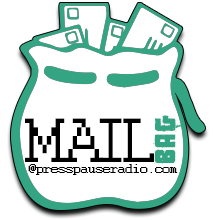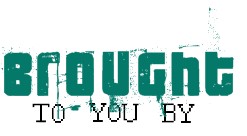QCF: Uncharted 4: A Thief's End
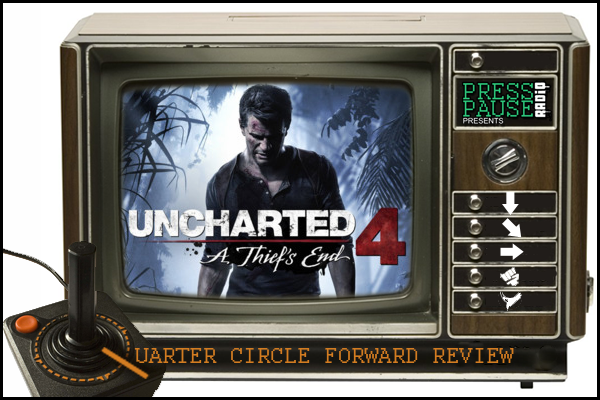
 t’s weird to think that Naughty Dog’s modern-day, prize winning property has become ten years old in 2016. It only seems like yesterday that we were teased with screenshots of the first entry in development in Electronic Gaming Monthly when it was code named BIG (hell, I even remember that weird brief stint where the name “Dude Raider” was seriously being considered as a title.)
t’s weird to think that Naughty Dog’s modern-day, prize winning property has become ten years old in 2016. It only seems like yesterday that we were teased with screenshots of the first entry in development in Electronic Gaming Monthly when it was code named BIG (hell, I even remember that weird brief stint where the name “Dude Raider” was seriously being considered as a title.)
But low and behold; what some panned to be a pandering attempt at building what appeared to be a male foil to the iconic Tomb Raider franchise as flagship exclusive, turned out to be one of the most successful properties to have ever carry the Sony brand instead.
And now it’s at an end—A Thief’s End to be exact. While Drake’s Deception managed to deliver more of the spectacle and action that the franchise is famous for, it was still very much a sequel that mainly geared at delivering more of the same.
Uncharted 4 drives towards something different though; finality, and it doesn’t simply settle at doing this this with flashy action or over-the-top production value, it does it with the one element that I think best defines Uncharted, charisma.
We’re talking pure, unadulterated, captivatingly charming charisma…
On the surface, the Uncharted series generally came across as the ultimate action-fantasy, filled with drama and danger, being chased by an everyman hero that anyone can like—and it capitalized off that initial appeal, only to win them players over with it’s incredible characterization and writing. So maybe that’s why A Thief’s End manages to be so refreshing so quickly, because it reverses that expected paradigm in full force, shifting the focus towards Drake first and his ongoing struggle to adapt to his more domestic direction, and the thrill of that lingering adventure second.
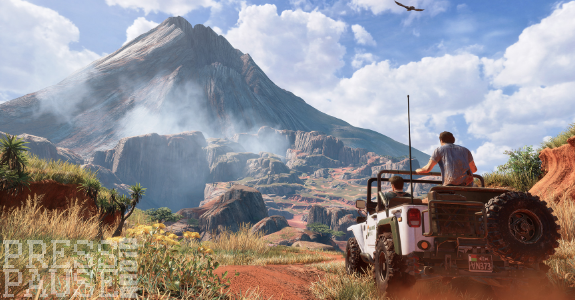
I became less interested in getting to the inevitable climbing and shooting within the game, and much more enthralled with witnessing the exposition of Nathan’s internal conflict of who he is, and how it affects everyone close to him. I eventually came to understand that playing A Thief’s End isn’t just you playing the latest entry to the series, it really is you playing the last game to ever bear the name, and being ok with it, more than ok with it actually—content would be a more appropriate term.
That’s not to say that the adventure isn’t up to snuff though; the quest for Libertalia is a solid expedition that’s worthy of the Uncharted name. What really makes it so distinctively memorable is that it strays away from the usual traits found in the previous outings of the property, mainly that the extravagance behind it is significantly scaled back in contrast to the others, maintaining a more genuine sense of appeal as a result.
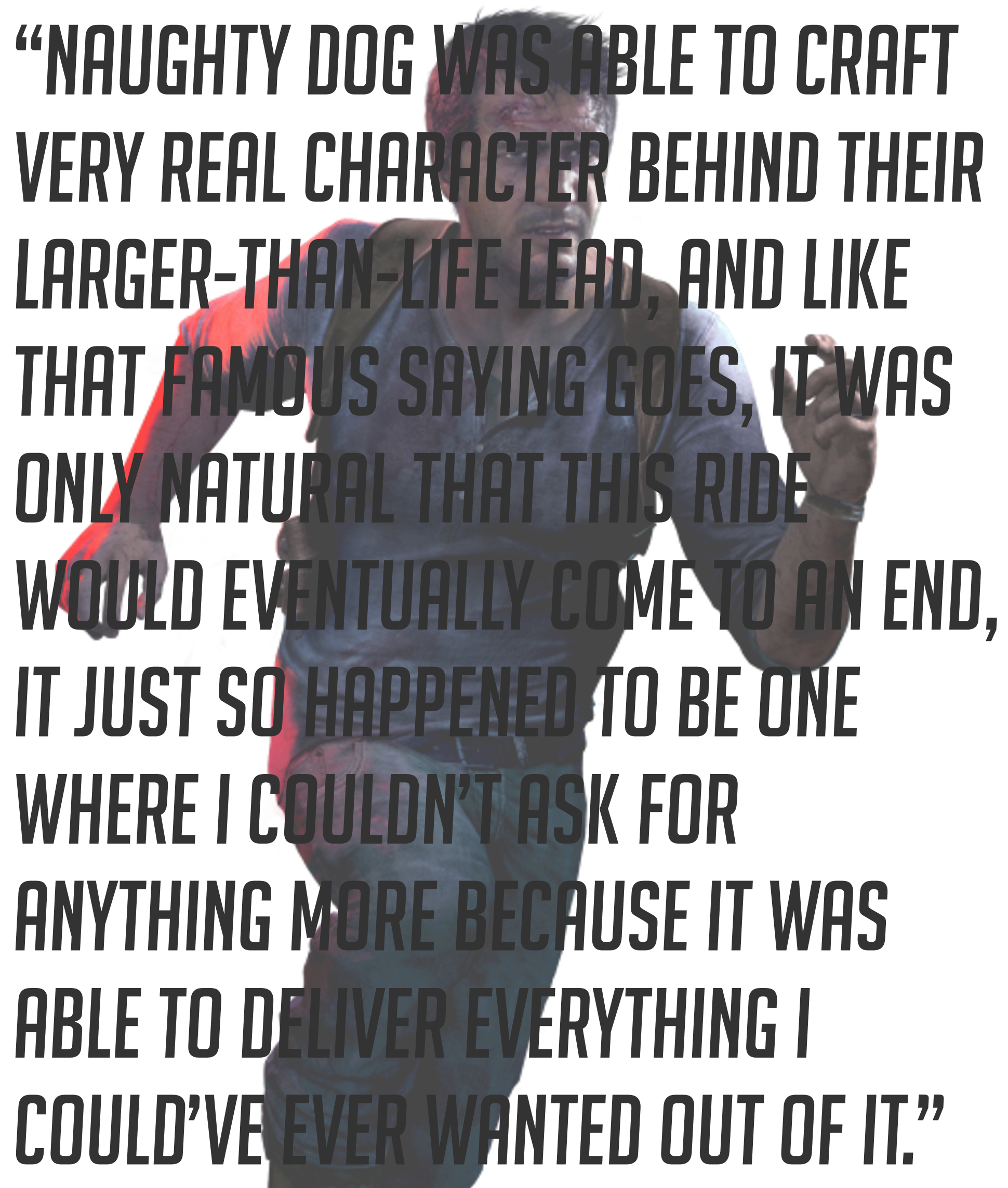 The humble eminence to the prize at the end of the treasure hunt reinforces the emphasis of Uncharted 4’s characterization, especially with something as grand as the introduction to new support character that plays such a big role like Sam. We’ve seen exchanges between Drake and companions before. The companions that ranged from a spurned lover turned acquaintance, to a surrogate father figure, and even the cliché of that old friend who turns tailcoat on you and becomes your foe—it’s all been covered in the series before. So the reemergence of an estranged brother from his deep past seems like a convenient plot device to throw in, but the execution of Sam’s role by Naughty Dog’s direction with him definitely hit the impact that they were going for all the way out of the park.
The humble eminence to the prize at the end of the treasure hunt reinforces the emphasis of Uncharted 4’s characterization, especially with something as grand as the introduction to new support character that plays such a big role like Sam. We’ve seen exchanges between Drake and companions before. The companions that ranged from a spurned lover turned acquaintance, to a surrogate father figure, and even the cliché of that old friend who turns tailcoat on you and becomes your foe—it’s all been covered in the series before. So the reemergence of an estranged brother from his deep past seems like a convenient plot device to throw in, but the execution of Sam’s role by Naughty Dog’s direction with him definitely hit the impact that they were going for all the way out of the park.
The more the campaign carried on, the more I began to see his connection to Nate, and how much his presence legitimately conveyed the gravity that his connection to the hero of this decade-long actually held, and the lingering skeletons that he’s still managed to keep in the closet after all of these years really did seem believable.
The chemistry between Drake and Elena is on a whole different level though, I really don’t know how much justice I could give describing just how palpable the moments of the relationship that these two came into focus on the screen. Whether it was the intimacy, clashing, or the earnest interaction between them—the bond between them is more harrowing than it’s ever been. The bond between these two in Uncharted 4 didn’t just transcend the trophy wife trope that Elena has already managed to successfully escape each and every time before; it redefines how a romantic relationship between two people should be portrayed in a piece of fiction like this.
The new addition of grappling is also welcome addition as it’s definitely lived up to being more than some superficial novelty that initially perceived itself to be. Identifying the points where the grappling hook can actually perch with gradually gets to be more and more challenging but in a fashion that’s organic to the natural system of platforming puzzles that’re already centric to the core of Uncharted’s gameplay. The gradual transition between scanning for ledges to scanning for grappling points when the lack of a reasonable ledge in distance is no longer an option became more and more intuitive as I played further into A Thief’s End. Especially when it came to set-piece mob encounters, as the additional maneuvering options from grappling and swinging afforded even more options to combat, both direct and stealthy alike.
Then there’s the cool quick strike it lends to melee combat in Multiplayer…
Speaking of Multiplayer, it’s far more frenetic and engaging than it’s ever been before.
The previous fundamentals are largely kept intact from the series’ previous competitive ventures, but there are a ton of different tweaks added to encourage squad tactics. Additions like downing for example where you’re opponents are briefly incapacitated into a vulnerable state before they’re fully slain, and the power-up attacks that’re earned, or passively handed out among a slew of other modifiers and perks that work to constantly keep the action in motion.
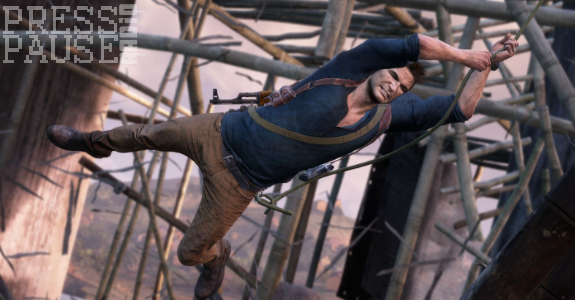
These power-ups range anywhere from summoned AI companions that spread out to hunt your foes and earn kills for you to Mystical artifact attacks that’re excellent for crowd-control during heavy fire-fights, not to mention that they can be a serious difference maker for the scoreboard of kills for the match. Stages are also tightly more designed, in terms of intricacy and size, doing away possibility of a map being too large or labyrinthine to conduct the frantic ebb and flow offered this time around. There are even more options for players to customize their loadout with too. The various combinations of firearms and side-arms or stat perks that geared around your play styles, the possibilities are far more vast than they’ve ever been, posing a great deal of more depth for players to sink their teeth into way before they risk hitting their glass ceiling.
I’ve made it no secret that Uncharted series is one of my favorite intellectual properties in video games, and it’s one that I once believed that I could never get enough of, and after my time with A Thief’s End, I can safely say that I don’t feel that way anymore—not out of fatigue, but satiation.
The experience here brings everything full circle, and never before have I felt so satisfied and fulfilled with the conclusion like I have here. Naughty Dog was able to craft very real character behind their larger-than-life lead, and like that famous saying goes, it was only natural that this ride would eventually come to an end, it just so happened to be one where I couldn’t ask for anything more because it was able to deliver everything I could’ve ever wanted out of it.
We live in an age where our favorite pieces of media, be it video game, film, or even literature is plagued with droves of arbitrary sequels that only exist to expand upon its lucrative horizons and not creative ones. Uncharted 4: A Thief’s End stands as a stellar exception where closure could give more back than another ten years-worth of sequels could ever hope to.
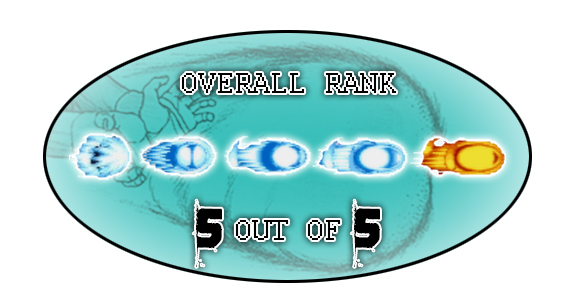
 End of an era,
End of an era,  Nathan Drake,
Nathan Drake,  Naughty Dog,
Naughty Dog,  PS4,
PS4,  PS4 Exclusive,
PS4 Exclusive,  Troy Baker,
Troy Baker,  UUncharted 4 | in
UUncharted 4 | in  QCF Reviews
QCF Reviews 


